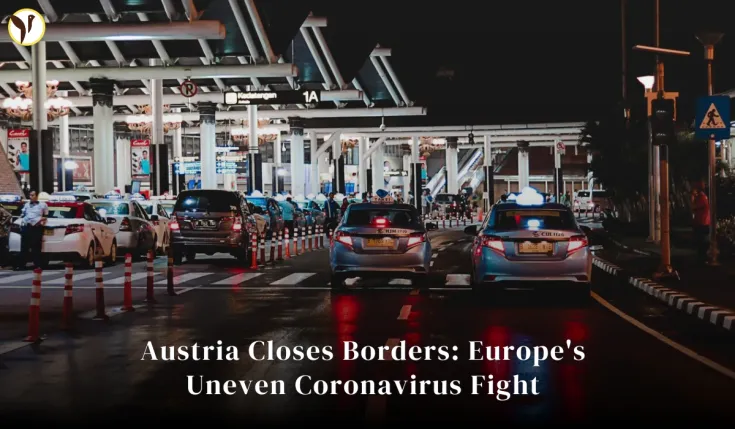Author
- Published: Apr 04 2025 05:18 AM
- Last Updated: Dec 31 2025 05:28 PM

Europe faces a surging coronavirus pandemic, prompting varied national responses. Austria's strict border closures and school shutdowns contrast with Germany's less restrictive approach, highlighting the complex challenges of a federal system and the virus's economic impact.
Source:
- https://www.zeit.de/politik/deutschland/2020-03/staatliche-corona-vorsorge-bund-grossveranstaltungen
- https://www.derstandard.at/story/3000000246927/siemens-schliesst-bis-ende-2026-wiener-werk-fuer-industrielle-stromversorgung
- https://www.spiegel.de/politik/ausland/mazedoniens-praesident-ivanov-ueber-fluechtlingskrise-wir-haben-unsere-eigenen-entscheidungen-getroffen-a-1079866.html
FAQ
Austria closed its borders in response to a surge in coronavirus cases across Europe. The government aimed to curb the spread of the virus by limiting travel and reducing potential exposure within the country. This is a drastic measure reflecting their concern about the pandemic's trajectory.
Austria implemented stricter measures, including border closures and school shutdowns, compared to Germany's less restrictive approach. This difference highlights the challenges of coordinating a response across a federal system where individual states have significant autonomy in policymaking.
Austria's border closures have significant economic consequences, particularly impacting tourism and cross-border trade. Businesses reliant on international movement face hardship, resulting in potential job losses and reduced economic activity. The long-term economic fallout remains to be seen.
The effectiveness of border closures in controlling the spread of COVID-19 is debated. While they can reduce the influx of cases from other regions, they are not a foolproof solution and their impact is dependent on many factors, including the level of community transmission within a country and the overall strategy.
The EU plays a coordinating role, but national governments largely retain the authority to implement their own public health measures. The EU facilitates the sharing of information, resources, and vaccines, but the pandemic response remains a largely national endeavor with varying approaches across member states.






